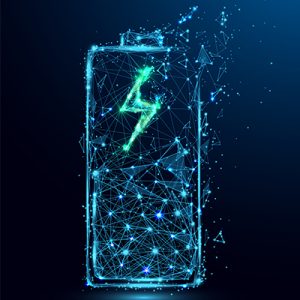 Energy storage is crucial for the successful transition to renewable energy. Yet lithium-ion batteries have major limitations. Demand for lithium has increased exponentially, but production has not kept pace. Extracting lithium by brine mining is a long, costly, energy-intensive, and dangerous process with significant environmental impact. Access is difficult as most lithium mines are in South America.
Energy storage is crucial for the successful transition to renewable energy. Yet lithium-ion batteries have major limitations. Demand for lithium has increased exponentially, but production has not kept pace. Extracting lithium by brine mining is a long, costly, energy-intensive, and dangerous process with significant environmental impact. Access is difficult as most lithium mines are in South America.
Researchers at the Indian Institute of Technology (IIT) Madras developed a rechargeable iron ion battery to replace lithium. It uses mild steel as the anode and can store a high amount of energy. The iron battery withstood 150 cycles of charging and discharging under controlled conditions. After 50 cycles, the battery had 54 percent capacity retention.
According to M.V. Sangaranarayanan, PhD, member of The Electrochemical Society (ECS), if pH is not controlled, stainless steel in batteries may corrode and the surface becomes passive. “(In the iron ion battery) … the multivalent charge carrier of Fe (a major constituent of mild steel) is made use of, thereby obtaining the performance similar to Li but without the associated complications. The detrimental effect of corrosion of Fe in acidic media has also been overcome by a judicious choice of ether-based electrolytes. Consequently, the iron batteries … have a lot of potential usefulness such as low cost, ease of fabrication, and enhanced safety,” said M.V. Sangaranarayanan.
Increasing performance is the next challenge. “We are trying out different metal oxides to increase the amount of iron ions that can bind to the cathode. When more iron ions bind to the cathode, more energy can be stored in the battery, leading to improved performance,” said ECS member Ajay Piriya, the first author of the iron ion battery paper.
Interested in learning more about batteries? The 236th ECS Meeting includes technical sessions on batteries and energy storage.

